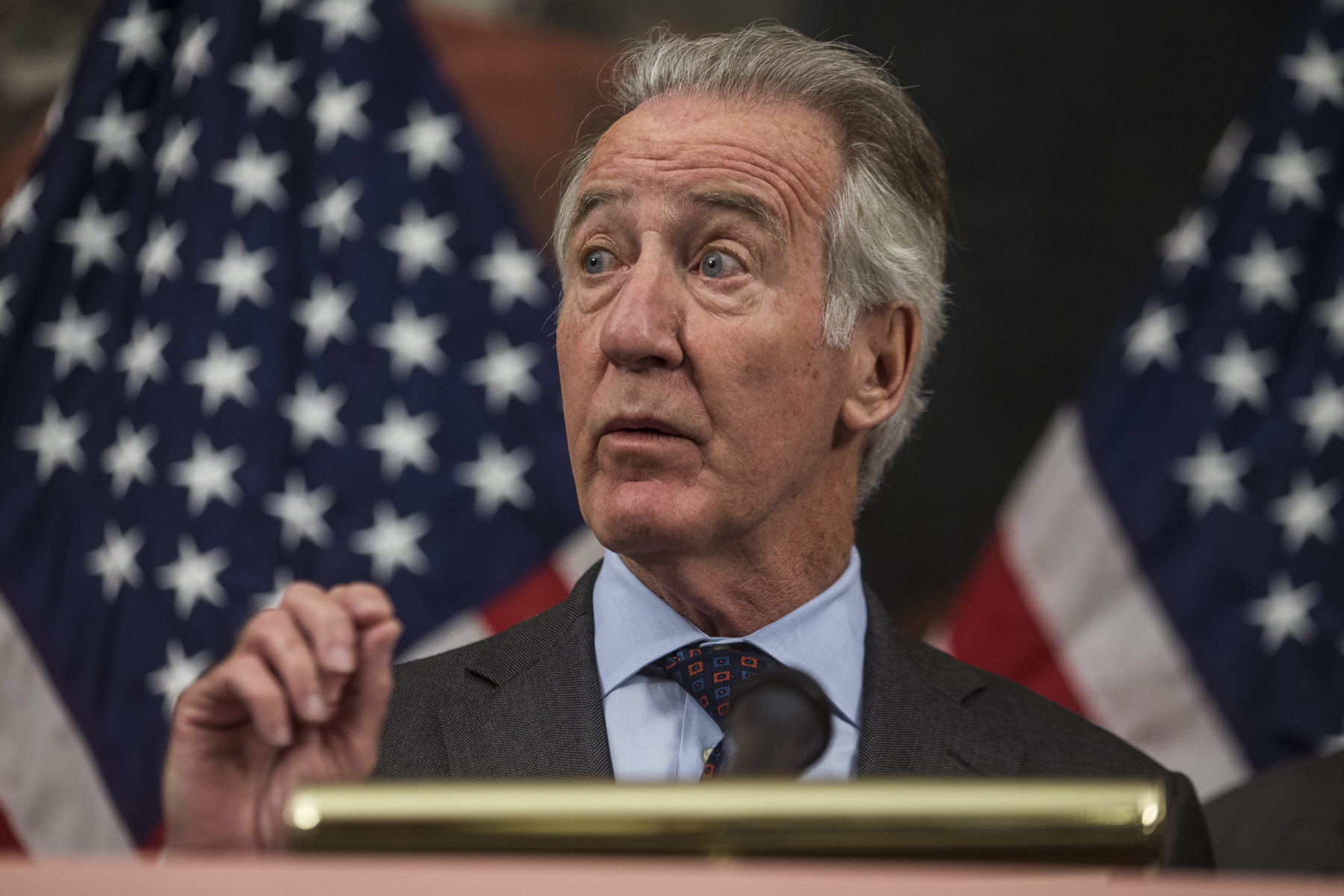
Richard Neal Got a Surprise Billing Deal for His Private Equity Donors
After House Ways and Means Committee Chairman Richard Neal (D-Mass.) blew up a bipartisan deal to fix surprise medical billing last year that his private equity industry donors opposed, congressional leaders have endorsed a new proposal, and Neal is on board.
The backroom deal was announced Friday night between four congressional committees: the House Energy and Commerce Committee, House Education and Workforce Committee, the House Ways and Means Committee, and the Republican-led Senate Health, Education and Labor Committee. Their plan, which has the blessing of Nancy Pelosi and Chuck Schumer, is to circumvent the legislative process and attach it to the year-end omnibus that must be passed to keep much of the federal government functioning.
The proposal will eliminate most of the expensive bills that get sprung on people when they are unknowingly treated by an out-of-network anesthesiologist, emergency room physician, or other health care provider at an in-network hospital. But Neal got some concessions that will help medical staffing companies, including those owned by private equity firms like Blackstone Group and KKR, maintain many of the profits they have been making by springing giant bills on unsuspecting patients. The cost of the savings Neal secured for the staffing firms will be absorbed by the health insurance companies, which will almost certainly respond by jacking up premiums a bit for everyone.
‘Far From Ideal’
At the center of the deal is an arbitration system for health care providers and insurers to resolve pricing disputes. If the parties can’t agree on a price for out-of-network care after a voluntary 30-day open negotiation period, the matter goes to an independent arbitrator empowered to make a binding decision. While arbitrators under the proposal would have to consider the median in-network rates for figuring out prices, among other factors, they would also be instructed to consider the contracted rates for recent years, a period during which private equity-owned staffing companies like Blackstone Group’s TeamHealth have been using out-of-network billing to get paid amounts far above median in-network rates.
USC-Brookings Schaeffer Initiative for Health Policy Associate Director Loren Adler wrote on Twitter that this could benefit companies like TeamHealth.
“The biggest weakness of the arbitration process is that it’s instructed to consider previously contracted rates between the two parties, which helps the groups who previously leveraged surprise billing to get high contracted rates,” he wrote. “This is far from ideal & could accrue to the benefit of the large PE-owned groups who really leaned in to surprise billing leverage.”
Blackstone Group and KKR employ at least 80,000 health care providers across the country and as of 2013 they controlled 30% of the physician outsourcing market. The biggest hospital company in the U.S., HCA Healthcare, formed a partnership with KKR-owned EmCare in 2012, allowing the staffing firm’s health care workers to penetrate the companies’ hundreds of hospital facilities and allow them to bill patients whose insurance covers the HCA Healthcare facility but not the EmCare contractor.
When arbitration has been used in the states to address surprise billing, it has tended to favor providers. In New York, for example, where an arbitration-based system was enacted in 2015, arbitrators have decided on rates that are, on average, more than 80% higher than the median in-network rates. The costs associated with New York’s arbitration-based system have already been passed on to health insurance consumers in the form of higher premiums, Adler told NPR in 2019. The same thing is happening in Texas, where a system with an arbitration backstop went into effect earlier this year. The average amount agreed to through arbitration for emergency room physicians in Texas so far has been $660 across all claims, well above the average network rate of $500 for the most expensive class of care, according to Bloomberg Law.
FierceHealthcare, the health care industry newsroom, called the deal “a win for providers” and a loss for payers. A business coalition called the Coalition Against Surprise Medical Billing that includes Blue Cross Blue Shield Association as a member slammed the deal, calling it “a gift for private equity firms.”
Why would a sitting Democratic congressman blow up a deal that would have relied on benchmark median rates and then back a deal using arbitration that will likely allow providers to secure higher rates? In a joint statement, Neal and Ways and Means Ranking Member Kevin Brady (R-Texas) said that their preference for an arbitration system over a benchmark rate “respects the private market dynamics between insurance plans and providers.” But another answer might be deference to campaign contributors.
Neal got maximum donations for his 2020 re-election from multiple top Blackstone Group employees including President and Chief Operation Officer Jonathan Gray, Global Head of Tactical Opportunities David Blitzer, Global Head of Strategic Partners Verdun Perry, Senior Managing Director Neil Simpkins, and Senior Managing Director Mustafa Siddiqui. Back in the fourth quarter of 2019, when Neal first blew up the deal, his joint fundraising committee brought in $54,000 from lobbyists for companies and trade groups that opposed it, including Blackstone, KKR, and Physicians Advocacy Institute. In addition, Neal benefited from more than $300,000 worth of digital ads from the American Hospital Association, which sides with providers because many of its member hospitals have profit-sharing agreements with their staffing firms that allow them to share the benefits when they can charge more.
In the September 1 Democratic primary, the 71-year old Neal beat progressive challenger Alex B. Morse by over 25,000 votes, more than 17% of the votes cast in Massachusetts’ First District. Massachusetts Democratic Party leaders advised Neal allies at UMass Amherst’s college Democrats chapter on how to execute a homophobic smear campaign against Morse that dominated local news coverage of the race and likely cost Morse key support.
